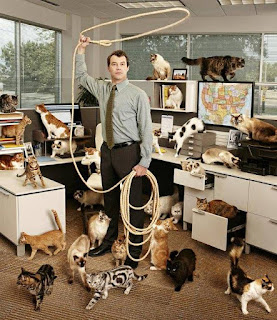A Time for Wisdom!
Can wisdom be learned without waiting until we are old and sage-like? Can we teach wisdom to our children? Can we train our political, business, and community leaders in the meaning and practice of wisdom and wise decision-making?
The scientific study of wisdom is still a very young field, but the mechanisms underlying wise thought and decision making are emerging through the research methods of psychology, economics, and neuroscience.
What psychological and social factors contribute to the development of wisdom?
Intelligence
Wisdom is often confused with intelligence. Of course, many smart decisions are neither wise nor unwise. Intelligence contributes to decisions that are well informed and made with thoughtful consideration, yet intelligence is a necessary but not a sufficient condition for wisdom. For a decision to be wise and not just smart it must lead in some way to human flourishing and to the enhancement of our common good.
Age
The aged sage seems to be almost universal across cultures. To be thought wise, one needs to reach a certain advanced age. And not surprisingly, we seem to have few celebrated examples of younger people displaying wisdom. But not everyone who is older is wiser so perhaps it's not biological age that causes wisdom. Some research findings suggest that wisdom performance is most likely to be found in older age groups but the "getting of wisdom" plateaus in our 30's.
Experience
Do certain experiences in life lead to wisdom? If wisdom is a consequence of experience, some older people should be wiser because older people have more experience than younger people. But this also suggests that young people who have similar experiences might also become wise without waiting for the passage of time. What kinds of experiences contribute to wisdom? And can we be "inoculated" with certain experiences that help to move us along the path to wisdom?
Self Regulation
Does increasing experience in meditation lead to increased wisdom? Some studies suggest that meditation is related to increased cognitive, affective, and reflective wisdom. However, it appears that increased ballet experience is also related to cognitive, affective, and reflective wisdom. What does ballet have to do with wisdom? One conclusion is that self regulation and self control, which are important in maintaining such practices over long periods of time may be important for the development of wisdom.
Rational Decision Making
Behavioural economics research has demonstrated that there are a number of decision biases that distort rational economic decision making. For example, the endowment effect predicts that simply owning an object raises its subjective value beyond the object's worth in the marketplace. Studies have shown that experience in trading reduces this kind of bias through a lowering of neural activity in the part of the brain associated with loss aversion. This implies that more experience in market transactions increases the ability to make more rational decisions resulting in fairer, more reasonable transactions.
Language
Some studies have shown that thinking in a second language reduces economic biases in decision making, and it also appears to increase creativity and insight in problem solving. Thinking in a foreign language may provide some emotional distance from a situation and could make self regulation easier leading to more rational decisions, and more divergent and creative thinking.
Virtue Motivation
Wisdom seems to depend in part on understanding that the values and perspectives of other people are important in solving human problems. Wisdom also seems to be grounded in a kind of virtue motivation, such that other virtues may be harnessed in the use and development of wisdom.
Reflection
Wisdom also appears to depend on a willingness to engage in intellectual struggle and a capability not to be deterred from working on tough problems that may require reflection, and even self reflection.
Divergent Thinking
Wisdom may also depend on a propensity to engage in divergent thinking, creativity, and the insight that comes form a diversity of experiences, and from forming new concepts and associations among concepts.
The goal of research into wisdom is to elucidate the way in which wisdom can increase with experiences and to understand the kinds of experiences that can lead to wisdom. In this way it may be possible to become a little wiser without waiting to become older.
- Is wisdom something that anyone can acquire?
- Does making wiser decisions in one area (such as financial decisions) imply wisdom in other areas (such as human relationships)?
- Is it necessary to have survived a tragedy or terrible experience to become wiser?




Comments
Post a Comment